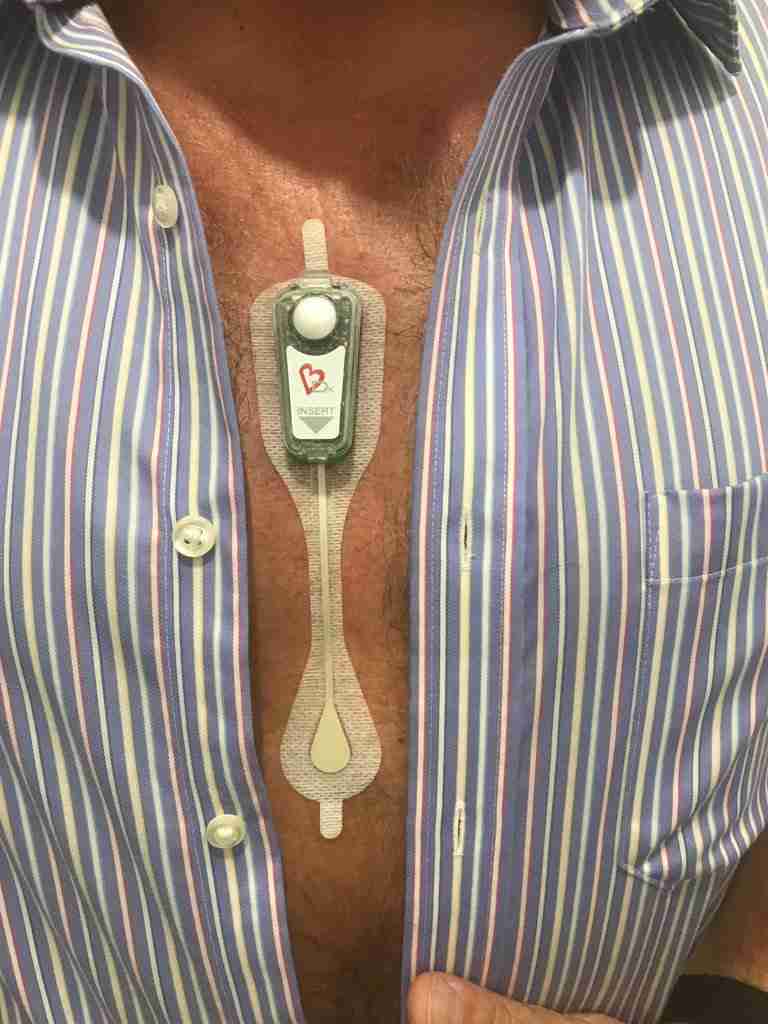Prof Lis Neubeck L.Neubeck@napier.ac.uk
Professor
Prof Lis Neubeck L.Neubeck@napier.ac.uk
Professor
Australian data report that up to 1 in 5 acute coronary syndrome (ACS) patients are readmitted within 30-days.[1] It is estimated that between 2017-18, ACS events cost Australia $1,930 million.[2] Internationally, Hospital Readmissions Reduction Programs,[3] that penalise acute-care hospitals whose 30-day readmission rates are high have made discharge strategies an economic priority.
Shorter lengths of stay have significantly reduced the time available for beside education. Instead, patients are usually provided with pamphlets, booklets or referred to websites. A mis-match often exists between the printed education materials and the health literacy levels of the intended audience this includes patients who have English as a second language (1 in 5 Australians). [4] Innovative discharge education interventions are urgently needed. Modern technology can provide solutions for clinicians. [5]
There are also 2 important evidence-based practice gaps that underpin the justification for this study.
1) There is limited evidence for the effectiveness of current ACS discharge strategies or their cost effectiveness. [6]
2) A Cochrane review from 2012 suggests that when used alone and compared to no intervention, there was insufficient information to estimate the effect of printed education materials on patient outcomes. [7]
Expected cardiovascular health outcomes
Our project will address the above practice gaps by consumer co-creation and feasibility testing, of standardised discharge and medication education (including the six key steps to recovery after a heart attack) using Avatar technology, for patients and families with English as a second language and/or low health literacy. The Avatar will also be programmed to speak the six most frequently spoken languages in Australia. [4] We will evaluate the impact of this discharge strategy on knowledge and 30-day readmission
| Type of Project | P04 - Research Charities and Trusts |
|---|---|
| Status | Project Complete |
| Funder(s) | National Heart Foundation of Australia |
| Value | £0.00 |
| Project Dates | Apr 1, 2020 - Mar 31, 2022 |

Low uptake of physical activity programmes by men; why don’t they go? Sep 1, 2016 - Jul 31, 2022
This nurse-led project will be an interdisciplinary collaboration between leading researchers working in Edinburgh Napier University, in the University of Sydney, and Flinders University, Adelaide Australia, nurses in NHS Fife and allied health profe...
Read More about Low uptake of physical activity programmes by men; why don’t they go?.

Secondary detection of atrial fibrillation Jan 1, 2018 - Oct 31, 2019
Secondary detection of atrial fibrillation post stroke.
Cardiovascular disparities among young adults in Scotland: Linking the Scottish Longitudinal Study from 1991 to 2011 Jul 1, 2018 - Dec 31, 2019
In this study, we aim to examine:
1. Trends in the prevalence of hospital admissions for CHD in young adults and compare them with older adults between 1991 to 2011;
2. Trend in the annual rates of major CHD events (non-fatal MI and CHD death) in...
Read More about Cardiovascular disparities among young adults in Scotland: Linking the Scottish Longitudinal Study from 1991 to 2011.

Increasing medication adherence among adults with atrial fibrillation: A Medical Research Council complex intervention framework development and feasibility study. Jul 1, 2019 - Mar 31, 2023
Atrial fibrillation (AF) is a common abnormal heart rhythm affecting more than 1-million people in Scotland. People with AF are five-times more likely to have a stroke and twice as likely to die, compared to those without AF. Strokes caused by AF are...
Read More about Increasing medication adherence among adults with atrial fibrillation: A Medical Research Council complex intervention framework development and feasibility study..
Who benefits from cardiovascular risk reduction programmes? Building a Scottish observatory to measure the impact of blood pressure (BP) telemonitoring and future cardiovascular risk reduction interventions Sep 1, 2020 - Sep 30, 2024
The British Heart Foundation is partnering the Scottish Government in supporting the roll out of an evidence based BP telemonitoring initiative (scale up BP) in order to facilitate increased detection and improved management of hypertension and subse...
Read More about Who benefits from cardiovascular risk reduction programmes? Building a Scottish observatory to measure the impact of blood pressure (BP) telemonitoring and future cardiovascular risk reduction interventions.
About Edinburgh Napier Research Repository
Administrator e-mail: repository@napier.ac.uk
This application uses the following open-source libraries:
Apache License Version 2.0 (http://www.apache.org/licenses/)
Apache License Version 2.0 (http://www.apache.org/licenses/)
SIL OFL 1.1 (http://scripts.sil.org/OFL)
MIT License (http://opensource.org/licenses/mit-license.html)
CC BY 3.0 ( http://creativecommons.org/licenses/by/3.0/)
Powered by Worktribe © 2025
Advanced Search